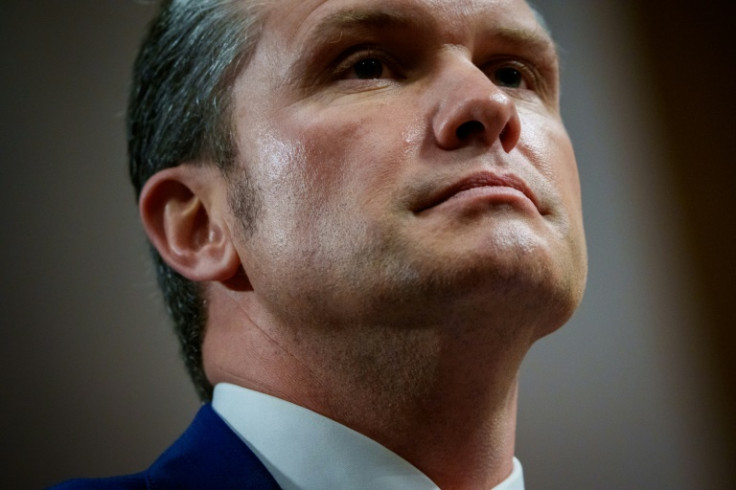US Defense Secretary Pete Hegseth Sold 23 Stocks Days Before Trump's Liberation Day Market Crash - Did He See It Coming?
Hegseth also sold five stocks in early February

Congressional trading surged right around US President Donald Trump's Liberation Day in early April as his tariffs announcement triggered a market crash that wiped out trillions of dollars across global markets.
Many politicians, including Marjorie Taylor Greene, appear to have timed the market with stock trades during the crash that generated significant profits in a short span after US markets rebounded from the shock tariff announcements.
A recent periodic transaction report revealed that even US Defense Secretary Pete Hegseth made considerable stock trades nine days before Liberation Day, which helped him avoid massive losses during extreme market volatility.
The report revealed that Hegseth sold 23 stocks worth between £74,115 ($100,000) and £407,632 ($550,000) on 24th March.
These were stocks of major companies: Apple, Microsoft, Amazon, Alphabet, Advanced Micro Devices, Walmart, Oracle, Visa, Mastercard, Costco, JPMorgan, Chubb, PepsiCo, International Business Machines, T-Mobile, Lowe's, Ares Capital, Danaher Corp, Thermo Fischer Scientific, Mondelez International, Trane Technologies, The PNC Financial Services Group, and Laboratory Corp. of America Holdings. Most of these stocks plummeted in value after Trump's 2nd April announcements.
While the majority of Hegseth's trades were between £741 ($1,000) and £11,117 ($15,000), some of the stock sales were between $15,001 and £37,057 ($50,000). Congressional trading is often linked with insider trading, as many claim people in influential government posts have access to critical information beforehand, which can significantly influence markets.
Former House Speaker Nancy Pelosi made triple-digit returns over the past decade, which has triggered major speculations of insider trading, which she has refuted for years. Similar speculations are gaining momentum regarding Hegseth's recent stock trades.
Was Hegseth in The Know?
NOTUS reported yesterday that ethics experts indicated Hegseth's stock market play in tandem with Trump's major political decision might not have violated the STOCK Act or reached the level of insider trading, but raised some important questions.
'An appearance of wrongdoing, an appearance of insider trading, or the appearance that people are more focused on their stock portfolio than working on behalf of the American public is just as bad as if a violation actually occurred because our system relies on the public being able to trust our leaders and trust in the system,' said Delaney Marsco, ethics director at Campaign Legal Center, told NOTUS.
Meanwhile, John Pelissero, director of government ethics at the Markkula Center for Applied Ethics at Santa Clara University, said: ' I don't see anything in the stock sales or his ethics agreement that would suggest that he took advantage of information he received as a cabinet officer in executing the stock sales. To remove the appearance of an ethical issue — that he made individual stock trades while serving as SECDEF and the information that comes with that position — he could have sold those stocks before becoming a cabinet officer.'
The disclosure report also revealed that Hegseth sold stocks like Northrop Grumman, Lockheed Martin, Blackstone, Honeywell International, and KKR & Co. in early February, shortly after he was appointed as the defense secretary. Moreover, his stock trades were reported as assets owned by his spouse.
According to Jeff Hauser, the founder of Revolving Door Project, Hegseth's trades could have been both an attempt to offload stocks to avoid the appearance of a conflict of interest and time trades advantageously ahead of the Liberation Day tariffs and subsequent market crash.
Disclaimer: Our digital media content is for informational purposes only and not investment advice. Please conduct your own analysis or seek professional advice before investing. Remember, investments are subject to market risks and past performance doesn't indicate future returns.
© Copyright IBTimes 2025. All rights reserved.



















